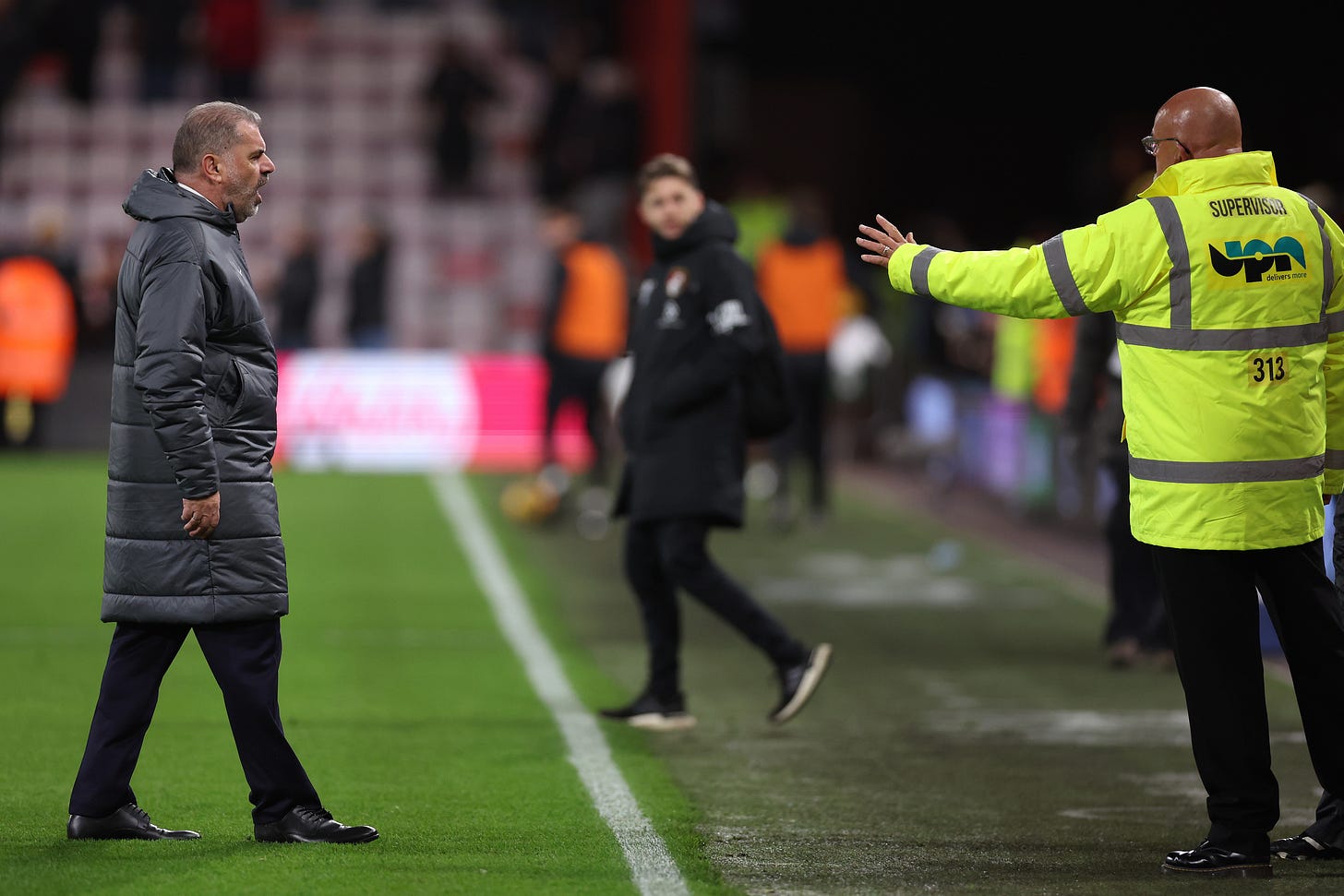Postecoglou, Spurs and the art of dealing with fan rancour.
Harry Redknapp once responded to a West Ham fan criticising him throughout the first half of a pre-season friendly against Oxford City by telling the lippy fan to get warmed up as he was coming on. “Can you play as good as you talk?" Redknapp asked.
The supporter was by the dug-out and giving Redknapp grief for 45 minutes for persisting with Lee Chapman. Redknapp made his allotted subs at half-time but when West Ham got an injury, and were down to 10, it was agreed the visitors could send another sub on.
West Ham’s kit-man found the mouthy fan some boots, gave him the No 16 shirt and Redknapp told the stadium announcer enquiring after the new sub’s identity that he should have been paying more attention to USA 94. On ran the fan, or loped in truth, as he was not the most athletic. He still scored.
Managers have differing ways of dealing with stroppy fans. That was 30 years ago when there was slightly more patience, respect and humour. Many fans are more volatile towards their team and manager now, their emotions paraded and intensified on social media.
Patience, and appreciation for past achievements, disappear more and more quickly. The views of an aggrieved few can be multiplied by the media into a larger chorus of disapproval than truly exists. Fans are quicker to anger nowadays, and some of it feels even performative: abusive gesture from one hand and camera-phone clutched in the other. Scream and stream.
The cost of watching teams exacerbates exasperation. Some fans seem more entitled now, expecting instant joy from their team now when few have realistic chances of a trophy. Managers, the public face of a team and club, are invariably the lightning rod for fans’ rancour.
Which leads us to Redknapp’s old team, Tottenham Hotspur. A handful of Spurs fans gave their head coach, Ange Postecoglou, some abuse when he walked over the Vitality pitch to applaud their support following the deeply disappointing performance and defeat to Bournemouth.
Away fans are often the most loyal supporters, travelling all over, enduring late nights and transport challenges, so when they turn it really is time for a manager to worry. Spurs fans were understandably frustrated by the 90 minutes, and by Postecoglou’s stubbornness in saying publicly that he does not put great store by practising set-pieces (which Bournemouth exploited) or in the need for a Plan B. He doesn’t adapt as the better managers do, including the likes of Bournemouth’s impressively over-achieving Andoni Iraola. Determination is a great trait in a manager, but not stubbornness.
A few Spurs fans let rip. “F**k off, you fat c**t” shouted one fan in the away section twice. Postecoglou tapped the crest on his jacket, signalling his commitment to the club, and his determination to work things through. He said something to the fans about their reaction but also clapped them. It was a more temperate response than Nigel Pearson’s “f**k off and die” riposte to critical Leicester City fans after a loss to Liverpool in 2014.


